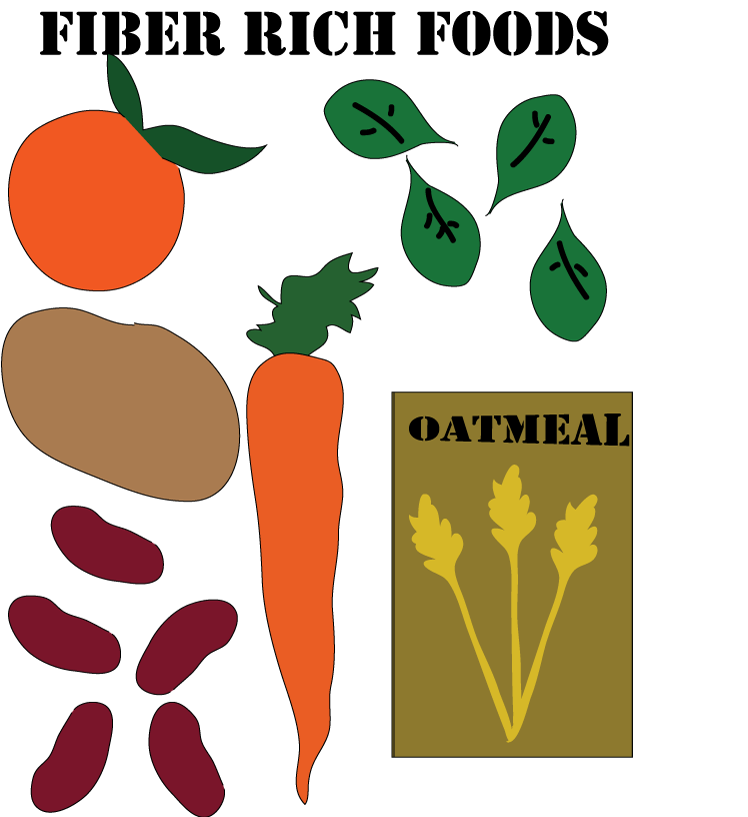Photo By: Erin King, Photographer
By: Marium Shaikh, Reporter
Fiber, is the indigestible part of plant foods that pushes through the digestive system, absorbs water and eases bowel movements and is an essential part of human diet. Consuming the recommended intake of fiber decreases chances of developing diabetes, obesity, and digestive diseases.
There are two types of fiber, the first is insoluble fiber, which is fiber that acts as a protective barrier against outside elements, helping to stimulate digestion, relieve constipation, and aid regular bowel movements. Foods rich in insoluble fiber are apple skins, vegetables, and whole-wheat foods. It’s while chewing the foods that fiber travels through the guts and sweep out waste that may remain fully intact in fecal matter.
The second type of fiber is soluble fiber which helps to control diarrhea and discard the “bad” cholesterol. This type of fiber is soluble in water. Soluble fiber provides numerous health benefits, including moderating blood glucose levels and lowering cholesterol. Oats, oatmeal, legumes, fruits, and vegetables are good sources of soluble fiber. Once soluble fiber reaches the small intestine, it combines with water and other fluids, making it into a jelly like composition; this gel begins to slow absorption in the gut, giving vitamins and minerals time to absorb.
According to the Institute of Medicine, fiber intake should be based on age and gender. Humans are recommended to consume 14 grams of fiber per 1,000 calories consumed. It is estimated that women should consume about 21 to 25 grams of fiber per day, whereas men should consume 30 to 38 grams per day.

























